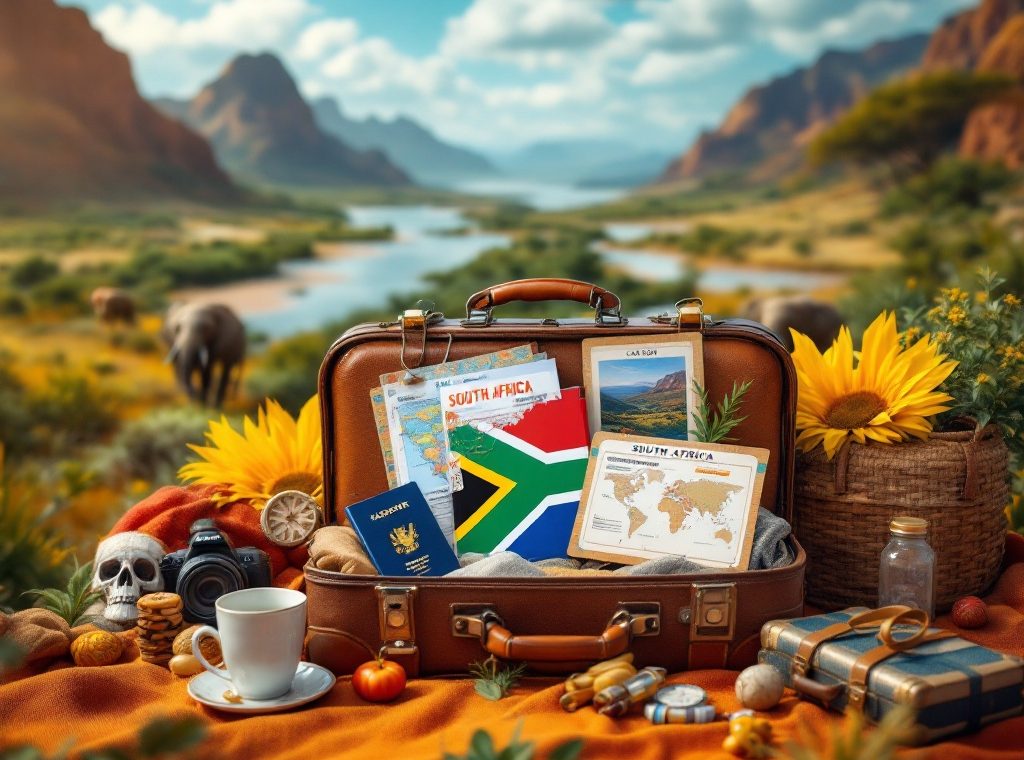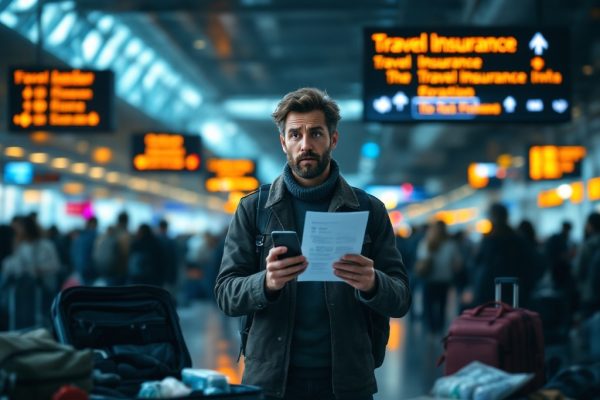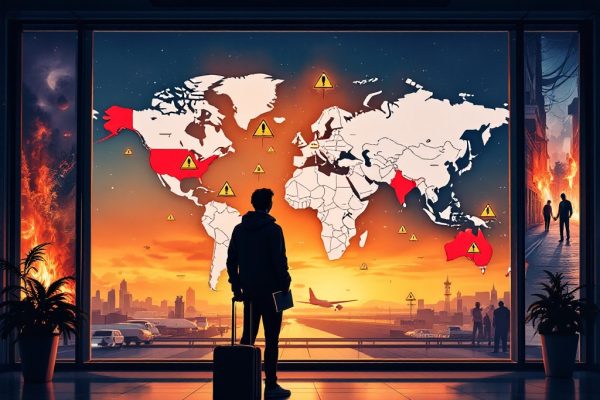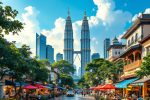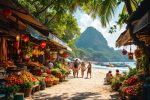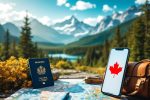Traveling to South Africa: How to Prepare
Dreaming of a South African adventure? US citizens can enjoy 90 visa-free days exploring stunning landscapes and vibrant cities. This comprehensive guide covers key travel essentials, from passport validity (6 months beyond return) and crucial documents like yellow fever certificates (if applicable) to health and safety advice, currency tips, and transportation options. Prepare for an unforgettable journey! Read on to start planning your trip.
Important information
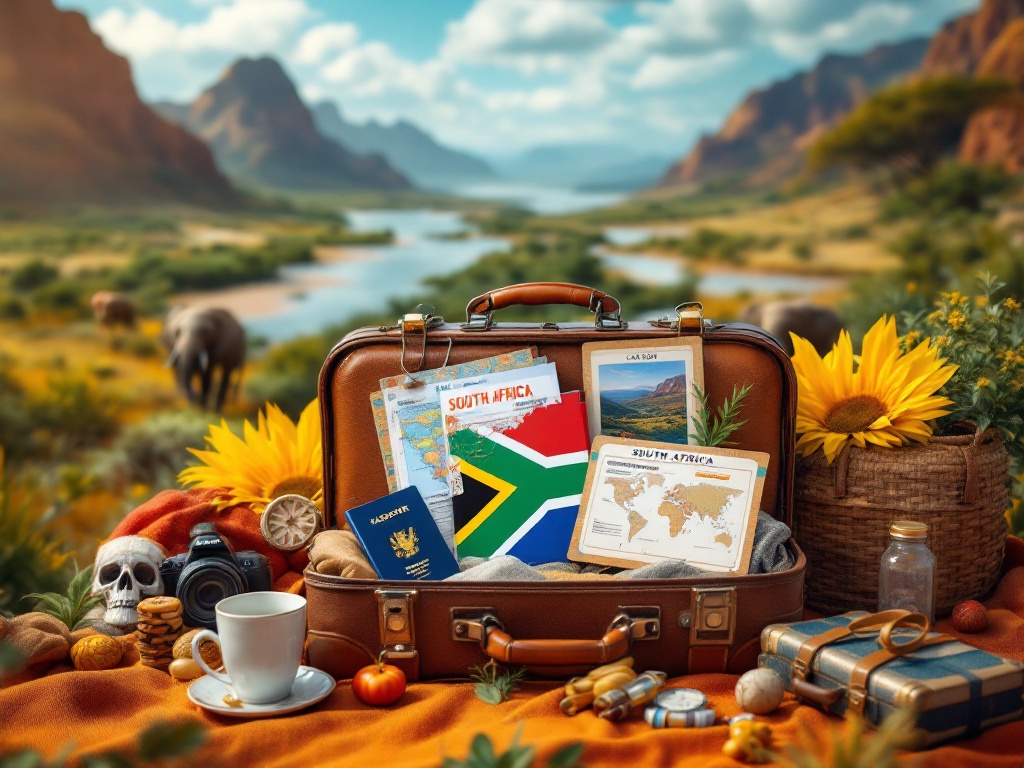
- US citizens can travel to South Africa for up to 90 days without a visa.
- Your passport must be valid for six months after your departure date and have two blank pages.
- Travelers arriving from a yellow fever zone need a valid vaccination certificate.
- Travel insurance is highly recommended for medical emergencies, trip cancellations, and lost luggage.
- Pack light, breathable clothing, sunscreen, insect repellent, and a Type M power adapter.
Essential Travel Documentation for South Africa
Planning a trip to South Africa as a US citizen? You can enjoy a visa-free stay for up to 90 days. Ensure your passport is valid for six months beyond your departure date and has two blank visa pages. If you are arriving from a yellow fever zone, bring your vaccination certificate. Also, consider copying important documents like travel insurance and accommodation confirmations for a smoother trip.
Passports and Visa Requirements
Planning a trip to South Africa? If you’re a US citizen staying for 90 days or less, no visa is required. Your valid US passport is sufficient for entry. However, ensure your passport is valid for at least 30 days beyond your intended departure date and has two blank pages available for stamping. Confirm these details before your trip to avoid any unforeseen issues.
Entry and Exit Requirements
South Africa requires two blank visa pages in your passport for entry. This requirement is strictly enforced, so ensure you have sufficient space.
Yellow Fever and Vaccination Certificates
Planning a trip to South Africa from a yellow fever risk zone? You’ll need a valid International Certificate of Vaccination. These at-risk zones are designated by the World Health Organization (WHO). Even a brief layover in such an area necessitates proof of vaccination, irrespective of your originating country. If your travel plans include any yellow fever countries, ensure you have the required documentation.
Health and Safety Considerations
Planning a trip to South Africa? Here’s what you need to know:
Health and Safety
- Consult your doctor for personalized health advice and recommended vaccinations.
- Discuss any pre-existing medical conditions with your doctor.
- Refer to the CDC and WHO websites for the latest health updates and travel advisories.
Security and Travel
- Invest in travel insurance to cover unforeseen medical expenses, trip cancellations, or lost belongings.
- Stay vigilant, especially in crowded areas, and follow local safety guidelines.
- Avoid displaying valuable items such as jewelry or electronics.
- Exercise caution while driving, be mindful of wildlife, and adhere to traffic regulations.
Consulting Your Doctor Before Traveling
Before your trip, consult your doctor regarding necessary vaccinations and medications. If you are traveling to a high-malaria-risk zone, discuss preventative measures with your doctor. Pack a first-aid kit with essential supplies for minor medical issues. Travel insurance is crucial for handling unexpected medical expenses or trip disruptions.
Health Precautions and Vaccinations
Consult your doctor about recommended vaccinations, including hepatitis A and B, typhoid, and rabies. If your destination has malaria, take preventive medication. Ensure routine immunizations such as MMR and tetanus are up-to-date. Review any COVID-19 regulations at your destination.
Travel Insurance Recommendations
Secure your South African journey with travel insurance. It safeguards you against unexpected problems like medical emergencies, trip cancellations, and lost baggage, providing invaluable peace of mind.
Safety Tips for Tourists
Traveling abroad? Prioritize your safety with these precautions:
- Be cautious, especially in tourist hotspots.
- Steer clear of unfamiliar areas after dark.
- Avoid displaying valuable items.
- Opt for safe transportation, such as official taxis or reputable ride-sharing services.
- Stay informed about local safety updates.
- Consider traveling with companions.
- Register with your embassy.
- Keep emergency numbers handy.
By staying aware of your surroundings, you can relax and enjoy your trip.
Situational Awareness and Local Advice
Be mindful of your environment. Heed guidance from local officials and your hosts. Stay informed about safety updates through news and alerts.
Driving in South Africa: Tips and Safety
Driving in South Africa presents unique challenges due to frequent load shedding, often resulting in traffic congestion. Before embarking on your journey, thoroughly research local driving conditions and familiarize yourself with the rules of the road. This preparation is particularly crucial for navigating city streets. Maintain alertness and situational awareness at all times, employing defensive driving techniques. Despite these obstacles, South Africa’s breathtaking landscapes offer an unforgettable experience. Meticulous planning is essential: map your routes in advance and consider traveling during off-peak hours to maximize your enjoyment.
Research and prepare. Investigate local driving conditions and regulations before your trip, especially if you plan to drive in cities.
Stay alert and drive defensively. Be mindful of your surroundings and practice defensive driving techniques to navigate potential hazards.
Plan your routes. Map your routes in advance and consider traveling during off-peak times to avoid traffic congestion caused by load shedding.
Financial Preparation for Your Trip
Planning your trip to South Africa? Here’s a guide to managing your money:
Currency
The local currency is the South African Rand (ZAR). Check current exchange rates before your trip, as they can change. Exchange your money at authorized bureaus or banks for the best rates, either before you leave or after you arrive.
Cards and Cash
While major credit cards like Visa and Mastercard are widely accepted in cities and tourist spots, American Express and Diners Club are less common. Notify your bank of your travel dates to avoid card issues. Carry some Rand in cash for smaller shops, local markets, and tips.
Tipping
Tipping is customary in South Africa. In restaurants, 10-15% is standard. For porters, guides, and other services, ZAR 10-20 is suitable. Taxi drivers usually get 10% of the fare.
Budgeting
Research average costs for flights, accommodation, food, activities, and transport in South Africa.
Create a daily or overall budget based on your travel style.
Include visa fees and travel insurance in your budget.
Add a buffer for unexpected costs.
Saving Tips
Enjoy free activities like hiking and exploring South Africa’s beautiful beaches.
Currency: Understanding the South African Rand
The official currency is the South African Rand (ZAR). Credit and debit cards are widely accepted, but cash is useful for smaller transactions. ATMs are readily available, however, it’s wise to notify your bank of your travel dates to avoid any card issues.
Credit Card Use and Acceptance
Credit cards are widely accepted across South Africa, particularly in shops and restaurants. Visa and Mastercard are the most popular choices. American Express and Diners Club have more limited acceptance. Before your trip, contact your card provider to understand international transaction fees and notify them of your travel dates to prevent any card usage problems.
Tipping Culture and Etiquette
Tipping is customary in South Africa. In restaurants, 10-15% of the bill is standard for good service. Tour guides, drivers, and porters also appreciate tips for excellent work.
Budgeting for Travel
Planning a South African adventure requires a well-defined budget. Consider these key aspects:
Itemize Potential Costs
Start by listing all possible expenses, including flights, accommodation, meals, local transportation, activities, and travel insurance. Remember to research typical costs in South Africa for each item.
Define Your Travel Style
Determine your travel style: budget backpacking, comfortable mid-range, or luxury. This choice will significantly impact your daily spending.
Account for Currency Exchange
Factor in the current exchange rates between your currency and the South African Rand. This will provide a more accurate budget estimate.
Include a Buffer
Always incorporate a financial buffer for unforeseen expenses or emergencies. This will help you stay within budget despite unexpected hiccups.
Visa Requirements
Determine visa requirements for South Africa based on your nationality. Include any associated visa fees in your overall budget.
Accommodation and Transportation Options
A rental car unlocks the freedom to explore South Africa, especially its rural areas and stunning national parks.
Public transport, including buses and trains, is readily available in major cities. For longer journeys, domestic flights connect urban hubs.
Regardless of your choice, pre-trip planning is essential. Researching routes, schedules, and booking rental cars in advance streamlines your travel experience, saving you valuable time and ensuring a smoother journey.
Renting a Car and Driving Tips
Exploring South Africa’s hidden gems, especially its picturesque countryside and stunning national parks, becomes effortless with a car rental. Before you hit the road, get acquainted with the local traffic regulations. Road conditions can vary significantly across the country, so planning your route is crucial. While GPS is helpful, traditional maps can be just as valuable, particularly when exploring areas beyond major cities. For added security, consider car rental insurance. If you prefer not to drive, major cities offer dependable public transportation.
Public Transport Alternatives
South Africa offers a variety of public transport options, including buses, trains, and minibus taxis, providing cost-effective travel within and between cities. For traveling within major metropolitan areas like Cape Town, Durban, and Johannesburg, Metrorail’s commuter trains are a practical choice. If you are planning longer journeys, consider bus services offered by Intercape, Greyhound, and City to City. Minibus taxis are widely available for shorter trips, but it’s always advisable to confirm routes and fares in advance.
Train
Metrorail serves major metropolitan areas, including:
- cape town,
- durban,
- johannesburg.
Bus
For longer journeys, consider these bus services:
- intercape,
- greyhound,
- city to city.
Minibus taxis are readily available for shorter trips, but confirming routes and fares beforehand is recommended.
Packing and Gear Essentials
Pack for your South African adventure with our helpful guide:
Clothing
Pack light, breathable clothing for warm days, but also a sweater or jacket for cool evenings. Remember that mountainous regions, like the Drakensberg, are significantly colder. For safaris, neutral-colored clothing is best.
Essentials
Comfortable walking shoes are crucial for exploring. Sun protection is key, so pack a hat and sunscreen. Insect repellent is recommended, especially in areas with mosquitoes. Don’t forget a Type M power adapter and a reusable water bottle.
Health
Pack any necessary medications and a first-aid kit.
Documentation
Crucially, pack all essential documents like your passport and visa (if required).
Don’t forget
Remember your camera to capture those unforgettable memories.
Clothing: Comfort and Functionality
Pack light, breathable clothing for warm days, but remember layers for cooler evenings. Versatile items that can be mixed and matched are ideal. Comfortable, sturdy walking shoes are essential. Protect yourself from the sun with a hat, sunglasses, and sunscreen. If you plan on hiking, pack hiking boots and moisture-wicking attire. For safaris, neutral-colored clothing is recommended, and a light rain jacket is always advisable.
Essential Items
- Comfortable, sturdy walking shoes.
- Hat.
- Sunglasses.
- Sunscreen.
Activity-Specific Items
- Hiking boots and moisture-wicking attire for hiking.
- Neutral-colored clothing and a light rain jacket for safaris.
Packing Tips for Different Activities
Safari Essentials
- lightweight, neutral-colored clothing (long-sleeved shirts and pants),
- comfortable walking shoes,
- sunscreen,
- a hat,
- insect repellent,
- a reusable water bottle,
- a small first-aid kit.
City Tour Must-Haves
- comfortable attire,
- a light jacket,
- a daypack,
- sunscreen,
- a hat,
- insect repellent,
- a reusable water bottle.
Recommended Travel Gear
Enhance your safari experience with binoculars for stunning wildlife viewing.
Comfortable walking shoes are essential for exploring.
Shield yourself from the strong South African sun with sunscreen and a hat.
Insect repellent is a must.
Remember a Type M power adapter to keep your devices charged.
Stay hydrated with a reusable water bottle.
Photography and Safari Equipment
Enhance your wildlife viewing experience with binoculars. Capture breathtaking safari moments with your camera and essential photography gear. Neutral-colored clothing is highly recommended for minimizing disturbance and maximizing your wildlife sightings. Pack these essentials for an unforgettable adventure.
- Binoculars for up-close wildlife viewing,
- camera and photography gear to capture stunning moments,
- neutral-colored clothing for an optimal safari experience.

